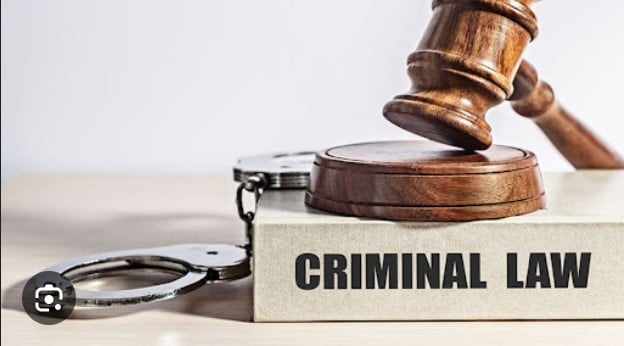In the intricate web of the legal system, individuals facing criminal charges often find themselves in a complex maze. In this maze, the stakes are high and the consequences are profound. It is during these critical moments that the expertise and guidance of a seasoned criminal advocate become indispensable. In this comprehensive post, “Best Criminal Advocate” we shall talk about this broadly. We also delved into Defining Criminal Advocacy and Characteristics of the Best Criminal Advocates. As well as the Evolving Challenges in Criminal Defense and Legal Ethics and Professionalism.
Defining Criminal Advocacy
Criminal advocacy, at its core, is the specialized practice of representing individuals accused of criminal offenses. This multifaceted field demands not only a profound understanding of the law but also an acute awareness of the human element that permeates every case. The best criminal advocates are adept at blending legal expertise with a deep understanding of their clients’ unique circumstances.
The Role of Criminal Advocates
Criminal advocates shoulder the responsibility of safeguarding their clients’ rights. As well as constructing robust defenses, and navigating the intricacies of the legal system. They serve as the primary line of defense against potentially life-altering consequences. Thus, including incarceration, fines, and lasting reputational damage. The complexity of criminal cases requires advocates to be strategic thinkers and meticulous researchers. As well as, persuasive communicators both inside and outside the courtroom.

Characteristics of the Best Criminal Advocates
Legal Acumen
A paramount characteristic of the best criminal advocates is an unmatched legal acumen. They possess an in-depth understanding of criminal law, procedural rules, and precedents. Whether it involves scrutinizing evidence, identifying legal loopholes, or crafting compelling arguments, these advocates exhibit a mastery of the legal landscape that sets them apart.
Analytical Skills
Effective criminal defense involves a meticulous analysis of case details, evidence, and potential legal strategies. The best advocates possess exceptional analytical skills, allowing them to dissect complex information, identify key details, and develop nuanced approaches to counter prosecution arguments. This analytical prowess is often the linchpin in crafting a defense that withstands legal scrutiny.
Communication Skills
Being able to convey complex legal concepts in a clear and persuasive manner is an essential attribute of the best criminal advocates. They must communicate effectively with clients, legal teams, judges, and juries. Whether in written briefs, oral arguments, or negotiations, the ability to articulate a compelling narrative can make the crucial difference in the outcome of a case.
Client-Centered Approach
The best criminal advocates are not only legal experts but also empathetic counselors. They understand the profound impact that criminal charges can have on individuals and their families. A client-centered approach involves building trust, actively listening to clients’ concerns, and tailoring legal strategies to align with the clients’ best interests. This holistic perspective distinguishes outstanding advocates who view their clients as individuals, not just cases.
Tenacity and Resilience
Criminal defense often entails facing formidable challenges, including aggressive prosecution, public scrutiny, and unpredictable courtroom dynamics. The best advocates exhibit unwavering tenacity and resilience in the face of adversity. They persistently pursue justice for their clients, adapting to evolving circumstances and maintaining their commitment to the principles of a fair and just legal system.

The Art of Legal Strategy
Case Preparation
Thorough case preparation is the foundation upon which successful legal strategies are built. The best criminal advocates leave no stone unturned when gathering and analyzing evidence, interviewing witnesses, and scrutinizing legal precedents. This meticulous approach ensures a comprehensive understanding of the case, enabling advocates to anticipate challenges and devise effective countermeasures.
Investigative Skills
In criminal defense, the ability to conduct thorough investigations is a pivotal skill. Whether uncovering new evidence, challenging the prosecution’s case, or identifying potential witnesses, the best advocates are adept investigators. Their commitment to uncovering the truth, coupled with an understanding of forensic techniques, strengthens their ability to build a compelling defense.
Strategic Thinking
Strategic thinking is a hallmark of the best criminal advocates. They possess the foresight to anticipate the prosecution’s arguments and devise counter-strategies. From pre-trial motions to courtroom proceedings, these advocates strategically navigate legal proceedings, always working towards the best possible outcome for their clients.
Negotiation Skills
In many criminal cases, negotiations play a crucial role in achieving favorable outcomes. The best advocates excel in negotiation, leveraging their understanding of the case’s strengths and weaknesses to secure advantageous plea deals or alternative resolutions. This skill is particularly valuable in mitigating potential consequences for their clients.

Exemplary Cases and Success Stories
High-Profile Acquittals
The best criminal advocates often have a track record of achieving remarkable results in high-profile cases. Through meticulous preparation, compelling arguments, and strategic maneuvering, these advocates secure acquittals for clients facing severe charges. Examining specific cases sheds light on the extraordinary legal skills and tenacity that set these advocates apart.
Landmark Legal Precedents
Some criminal advocates contribute to the legal landscape by establishing landmark precedents through groundbreaking cases. These legal trailblazers not only secure favorable outcomes for their clients but also shape the interpretation and application of the law. Understanding the impact of such cases provides insight into the long-lasting influence of the best criminal advocates on the legal system.
Legal Ethics and Professionalism
Upholding Ethical Standards
The best criminal advocates adhere to the highest ethical standards, recognizing the profound responsibility entrusted to them by their clients and society. Upholding the principles of honesty, integrity, and confidentiality is non-negotiable. This commitment ensures that the pursuit of justice remains not only effective but also morally sound.
Professionalism in and out of the Courtroom
Professionalism is a cornerstone of effective legal representation. The best criminal advocates conduct themselves with utmost professionalism both inside and outside the courtroom. This includes respectful interactions with opposing counsel, adherence to procedural rules, and a commitment to maintaining the integrity of the legal profession.

Evolving Challenges in Criminal Defense
Technological Advancements
The digital age has ushered in new challenges for criminal defense, from the use of electronic evidence to the complexities of cybercrimes. The best criminal advocates stay abreast of technological advancements, incorporating digital literacy into their skill set to effectively navigate the modern legal landscape.
Social and Cultural Dynamics
The evolving societal landscape introduces new challenges related to cultural sensitivity, bias, and public perception. The best criminal advocates are attuned to the social dynamics surrounding their cases, recognizing the importance of understanding diverse perspectives and navigating potential prejudices within the legal system.
Education and Training of Criminal Advocates
Legal Education
Becoming a proficient criminal advocate necessitates a solid foundation in legal education. The best advocates typically have extensive academic backgrounds, often holding advanced degrees in law and gaining specialized knowledge through focused coursework in criminal law, trial advocacy, and related disciplines.
Practical Experience
Legal education is complemented by practical experience gained through internships, clerkships, and entry-level positions in law firms or public defender offices. The best criminal advocates accrue hands-on experience, honing their skills in real-world legal scenarios and developing a nuanced understanding of the practicalities of criminal defense.
Continued Professional Development
The legal landscape is dynamic, with laws, procedures, and precedents continually evolving. The best criminal advocates recognize the importance of continued professional development. They engage in ongoing education, attend relevant workshops and conferences, and stay informed about emerging legal trends to ensure they remain at the forefront of their field.

Legal Representation for All
Access to Justice
While the best criminal advocates often gain recognition for their prowess in high-profile cases, they also play a crucial role in ensuring access to justice for all. Some advocates dedicate their careers to providing legal representation for marginalized communities, underserved populations, or individuals who cannot afford private legal counsel. This commitment to equal justice highlights the broader impact of the best criminal advocates on society.
Pro Bono Work
Many exemplary criminal advocates engage in pro bono work. Thus, offering their legal expertise to those who cannot afford traditional legal representation. This commitment to pro bono service contributes to a more equitable legal system. Thus, underscoring the ethical responsibility of legal professionals to contribute to the well-being of the broader community.
International Perspectives on Criminal Advocacy
Comparative Legal Systems
Criminal advocacy varies significantly across different legal systems globally. Examining international perspectives provides insights into the diverse approaches, challenges, and innovations within the field. Understanding how criminal advocates operate in different jurisdictions enriches the discourse on effective legal defense.
Cross-Border Challenges
In an increasingly interconnected world, criminal cases often involve cross-border implications. The best criminal advocates adeptly navigate the complexities of international law, extradition treaties, and collaborative efforts between legal systems to ensure the best possible outcomes for their clients.

Conclusion
In summary, being a criminal advocate is challenging and always changing. The best ones have a mix of skills like knowing the law, thinking strategically, and staying committed. They don’t just help individuals in court. They also impact the law, promote fairness, and make sure everyone has access to legal help. These advocates are like strong pillars in the legal system, guiding people through the complexities of the law and making a lasting impact on justice.
See also: https://onlinemasteroflegalstudies.com/career-guides/become-a-lawyer/types-of-lawyers/

